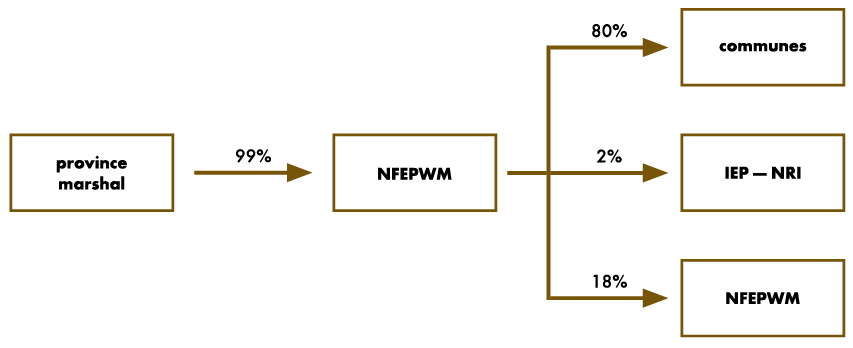The amended mechanism for extended producer responsibility—part I
In August, the long-awaited bill to amend the Packaging and Packaging Waste Management Act was published on the website of the Government Legislation Centre. The aim of the regulation is to implement the new EU provisions on extended producer responsibility for packaging waste. Below, we present the most important features of the new system and attempt to evaluate them.
By 5 January 2023, the EU member states are required to ensure that their national laws comply with the new extended producer responsibility (EPR) regime established by the amendment to the Waste Framework Directive (2008/98/EC). The new solutions are to be implemented into the Polish legal system by, among other means, amendment of the Packaging and Packaging Waste Management Act of 13 June 2013.
The most important of the proposed changes include:
- Obligation for companies to ensure recycling of packaging waste
- Establishment of producer responsibility organisations
- Imposing a packaging fee on certain businesses placing packaged products on the market.
Recycling of packaging waste
Currently, businesses placing packaged products on the market are obliged to ensure statutory recovery rates (including recycling) of packaging waste of the same type as those generated by the products they place on the market. The proposed regulations will modify this obligation: businesses will be obliged to ensure recycling (but not other types of recovery) of this waste. In practice, this means that waste recovery not classified as recycling, e.g. thermal conversion (incineration), will not be allowed to count towards fulfilment of the obligation imposed on businesses. Packaging waste will have to be transformed into materials, products or substances for reuse.
The annual recycling rates until 2030 will be determined by a resolution of the Minister of Climate and Environment, with the bill stipulating that as of 2030 businesses will have to ensure recycling of packaging waste of 70%. The obligation could be fulfilled independently (after notification) or through a producer responsibility organisation.
Producer responsibility organisations, i.e. new packaging recovery organisations
Under the act, currently operating “packaging recovery organisations” will become “producer responsibility organisations.” The minimum share capital required by law for such entities will be doubled, from the current PLN 2.5 million to PLN 5.0 million.
Importantly, operation of a producer responsibility organisation will require a permit from the Minister of Climate and Environment, which will be issued for up to 4 years. To obtain a permit, the organisation will have to submit, among other things, certifications that the members of the management board and supervisory board and commercial proxies, as well as the organisation itself and its shareholders, do not have a record of environmental offences. The permit will specify the types of packaging for which the producer responsibility organisation intends to assume responsibility.
A new solution will also regulate the minimum fee for the service of ensuring recycling rates by producer responsibility organisations. The fee for assuming the obligation to ensure recycling rates is to depend on the quantity of packaged products of a given type placed on the market and the unit rate for assuming the obligation to ensure recycling rates for that type. The unit rates set by the given producer responsibility organisation may not be lower than the rates set by the minister, to be published in the Public Information Bulletin (BIP) by 30 November of the year preceding the year in which they apply.
A producer responsibility organisation will be obliged to spend at least 95% of the funds it receives from fees for assuming the recycling obligation on packaging waste management activities. It will be obligatory to transfer 10% of the organisation’s profit after income tax for the previous year to the bank account of the National Fund for Environmental Protection and Water Management (NFOŚiGW). According to the explanatory memorandum to the bill, this solution is to be a mechanism encouraging maximum investment in activities related to packaging waste management.
Packaging fee
In addition to the obligation to ensure recycling rates of packaging waste, some businesses will be obliged to pay a packaging fee. The bill proposes to distinguish in the packaging stream:
- Household packaging
- Other packaging (from trade, distribution or industry).
The obligation to pay the packaging fee is to be limited to the first category of packaging, i.e. household packaging. Companies placing consumer packaged products on the market will be obliged to pay this fee.
The amount of the fee to be paid will depend on two factors:
- The weight of the packaging of products placed on the market
- The fee rate, depending on the type of packaging.
The rates will be determined by a regulation of the Minister of Climate and Environment and will depend, among other things, on the costs of managing packaging waste of a given type. However, the bill provides for a limitation of the unit rate of the fee, which could not exceed PLN 2 per kg of packaging.
The packaging fee is to be payable monthly (by the 15th of the month) to the bank account of the local province marshal. If the fee is not paid at all, or the payment is incomplete, the province marshal could impose on an enterprise, by way of an administrative decision, an obligation to pay the packaging fee. Failure to pay the fee within 14 days after the decision becomes final would entitle the province marshal to charge the company an “additional packaging fee” equal to 50% of the amount of the unpaid packaging fee.
Province marshals would transfer the collected funds to the account of the National Fund for Environmental Protection and Water Management (where 1% of the amount would constitute income of the local government of the province, intended for, among other things, administration of the packaging fee system and enforcement costs).
The National Fund for Environmental Protection and Water Management (NFEPWM) would then be responsible for further redistribution of the funds according to the following scheme:
- 80% to be transferred to separate bank accounts of communes or inter-communal associations
- 2% to be transferred to the bank account of the Institute of Environmental Protection—National Research Institute (IEP – NRI)
- 18% to be transferred to another account of the National Fund for Environmental Protection and Water Management.

The amount allocated to a specific commune would depend on the number of inhabitants and the commune’s waste recycling performance. Communes could earmark funds from packaging fees only to cover the costs of collection, transport and handling of municipal waste. The fee is intended to partially finance the costs of communal waste management.
Transitional provisions
Under the bill, the proposed provisions are to enter into force on 1 January 2023. However, until the end of 2022, the existing regulations will apply to the obligations to achieve the required recovery and recycling rates. Currently operating packaging recovery organisations would be obliged to adjust their activity to the new requirements and obtain a permit to conduct such activities by 1 January 2024. Failure to comply with these obligations would result in deletion from the Database on Products, Packaging, and Waste Management and the need to cease operations.
Summary
To a narrow extent, the proposed regulations implement the aims of the EU model of extended producer responsibility, assuming that manufacturers should bear either financial responsibility, or financial and organisational responsibility, at the last stage of the product life cycle. The mechanism proposed in Poland leans towards the first model, i.e. responsibility of a purely financial nature. It is unclear why the proposed system does not cover the costs of managing the product itself after use, but only its packaging.
It seems unusual to limit the obligation to pay a packaging fee to consumer packaging and exclude other types of packaging (such as service, commercial and industrial packaging) from the obligation. Only those introducing products in household packaging will be charged with the obligation to pay a packaging fee and to achieve appropriate recycling rates. Other businesses placing packaged products on the market would only be burdened with the obligation to achieve appropriate recycling rates.
The division of packaging into consumer packaging and other packaging would have to be reflected in the records kept within the waste database. Therefore, the scope of obligations are to be broadened: businesses would also have to provide information on the amount of packaging fees paid.
Some doubts may be raised as to the actual use of funds from the packaging fee. Ultimately, this fee would constitute one of the sources of financing of communal waste management systems. The commune would gain the authority to spend the packaging fee money on measures for all communal waste, not just consumer packaging waste. However, it is not clear how the funds from the packaging fee would ultimately be distributed to specific communes.
The strictness of the regulations affecting currently operating packaging recovery organisations would be increased. It seems that allowing one year for adjusting to the new regulations, including doubling the share capital by PLN 2.5 million and obtaining an operating licence, may not be enough.
The effectiveness of the proposed solutions and their impact on the quality of implementation of EU obligations can be assessed only after these solutions enter into force. However, it seems that a system based solely on the movement of a certain amount of money, without tangible producer responsibility, and the changed status of recovery organisations, will need to be improved in the coming years.
Dr Adrianna Ogonowska, Nina Kuśnierkiewicz, Environment practice, Wardyński & Partners

